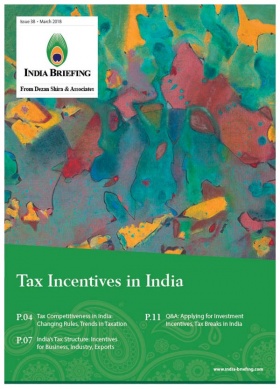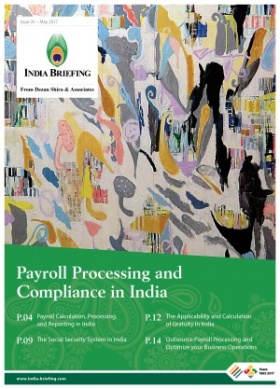Anti-Corruption Laws in India: Minimize Your Risk Exposure
With the festive season around the corner, companies in India are particularly vulnerable to risks arising out of the breach of anti-corruption laws. It is customary to give and receive gifts during major festivals in India, and firms typically incur various forms of hospitality and promotional expenditures in the course of business operations.
However, in certain cases, this conduct could potentially trigger serious fraud investigations into the company, even resulting in criminal liability. The compliance regime gets further convoluted in the case of multinational companies operating in India or having business interests in India due to the extra-territorial application of certain foreign statutes.
This article highlights how foreign firms can be implicated in such cases, and suggests international best practices to mitigate liability.
Extra-territorial application of foreign anti-corruption laws in India
Foreign companies having business connections or interests in India can be implicated if their home country law has extra-territorial application. Conversely, Indian companies having business connections in other jurisdictions may also be liable for extra-territorial offences.
The two most common examples of extra-territorial anti-corruption law are: the U.S. Foreign Corrupt Practices Act (FCPA) of 1977 and the U.K. Bribery Act (UKBA) of 2011.
Foreign Corrupt Practices Act
The primary mandate of the FCPA is to prohibit U.S. companies and their employees from engaging in corrupt practices, irrespective of their location. Persons and entities falling within the radar of the FCPA are forbidden to make or promise to make any direct or indirect payment to secure any improper or undue advantages. Moreover, payments as defined by the law include both monetary and non-cash considerations. Further, certain categories of persons and entities are prohibited from making payments to foreign government officials for certain business purposes.
The ambit of the FCPA is extremely wide, and includes multinational U.S. companies, foreign companies owning stake in U.S. companies, as well as subsidiaries and employees. Due to its extra-territorial reach, investigations can be carried out on payments made by American companies, their foreign subsidiaries or associates, and other persons obligated to comply with the FCPA.
However, the FCPA exempts facilitation payments, that is, payments made to facilitate routine governmental action such as processing various permits and approvals, providing police protection, access to utilities such as water, power, and gas.
It must be noted that the size of the payment – cash or non-cash – is an irrelevant factor in determining violations under the FCPA. The FCPA also mandates fair and proper internal accounting standards, which accurately reflect all the transactions of a company.
The Walmart (India) bribery investigation is among the more prominent cases demonstrating the extra-territorial reach of the FCPA.
U.K. Bribery Act
Similar to the FCPA, the UKBA’s jurisdiction extends to offences committed anywhere in the world if the business firm in question has a close connection with the U.K. or are domiciled in the U.K.
A distinct aspect of the UKBA is the liability of companies that fail to prevent bribery. This provision also has extra-territorial reach, and can implicate any person or entity having a close connection with a U.K. business entity.
For instance, if a Vietnam based agent of a Chinese company having a subsidiary in the U.K. commits an offence under the UKBA, the parent company can be prosecuted in the U.K. This is because the parent company is qualified under the Act’s close connection test; whether the person actually committing the offence is associated directly with the U.K. entity becomes irrelevant.
Overview of India’s anti-corruption laws
The principal law governing the mitigation of corruption in India is the Prevention of Corruption Act (POCA) of 2013. POCA applies to India, Indian citizens abroad, as well as to foreigners or foreign entities established in India. POCA prohibits receiving bribes, such as monetary or non-monetary payments to government officials, and seeks to penalize bribe givers, bribe takers, as well as persons acting in collusion.
The term ‘public official’ is given a wide interpretation under the Act, and can include any person performing a public function, including employees of private banks. Liability under POCA also extends to businesses; key managerial persons can be held liable for corrupt practices conducted by any employee of a company under investigation.
For American firms doing business in India, it is important to note that facilitation payments are not exempted under POCA and may attract criminal liability.
Other relevant anti-corruption regulation includes the Companies Act of 2013, which specifically defines and penalizes corporate fraud, and mandates the maintenance of transparent accounts.
Mitigating risk exposure in India
In order to mitigate their liability for breaches of anti-corruption laws, it is advisable that firms adopt certain precautionary measures. Some of the international best practices in this regard include:
Internal control and monitoring mechanism: Companies incorporated in India must have strong internal control mechanisms designed to prevent and monitor the violation of ethical compliance. Creating awareness, installing a robust whistleblower mechanism, and administering a top-down zero tolerance policy are also critical.
Due Diligence: Foreign firms must conduct basic due diligence of prospective Indian associates or business connections before entering into transactions or joint ventures; this reduces the risk of dealing with an entity already in breach of foreign statutes such as the FCPA.
Strategic gift policy: Gifts given to public officials must be infrequent, reasonable, and not intended for obtaining undue gains. Such transactions must be approved by the company’s legal counsel and should be properly recorded in the books of accounts. It is advisable that companies frame a standard gift policy to avoid confusion and attracting future liability.
About Us
India Briefing is produced by Dezan Shira & Associates. The firm assists foreign investors throughout Asia and maintains offices in China, Hong Kong, Indonesia, Singapore, Vietnam, and Russia.
Please contact india@dezshira.com or visit our website at www.dezshira.com.
- Previous Article Reverse Charge Mechanism in the Import of Services under GST
- Next Article Massive Data Breaches and Cyber Threats in India











